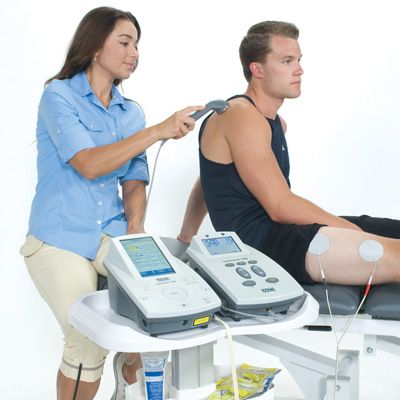
For many years, pain specialists have used electrotherapy which is the application of electrical current to mitigate pain. Over time, therapies like transcutaneous electrical nerve stimulation (TENS) have become common in many pain clinics, but there is still ongoing debate over the effectiveness of electrotherapies. Unlike most medical methodologies, electrotherapy is not based on sound medical research but rather on a growing number of satisfied patients.
The reason many pain specialists use TENS and similar treatments is that there is a modest chance that the patient will respond positively. More importantly, however, there are virtually no negative side effects, except a minor financial investment, which might make electrotherapy prohibitive. These non-drug therapies are growing in appeal especially as the opioid epidemic burgeons. Most pain doctors only recommend electrotherapies when all other treatment options have proven ineffective.
Ultimately, the question for most patients is “Will it work for me?” The answer is most likely to depend on a number of factors. Some people find long-term relief, while others enjoy a short period of freedom from pain but must use other treatments for lasting relief. However, many do not respond at all to electrical nerve stimulation.
Among patients who respond positively to electrotherapy, it is thought the electrical current overstimulates pain nerves. This is believed to desensitize the nerves, producing a numbing effect. Many researchers, however, argue that the effectiveness of electrotherapies is based on the placebo effect in which the patient’s belief in the treatment’s efficacy produces the desired effect.
Despite some real benefits in a portion of the chronic pain population, some medical organizations have issued warnings about electrotherapy. The American Academy of Neurology advised doctors recently not to use TENS because there was no scientific literature proving it worked. However, neurological experts have pushed back saying that too few studies have been performed to assess the efficacy of TENS as a pain therapy.
There are some studies that support the electrotherapy. A 2014 report in the Journal of Rehabilitation Medicine revealed that patients with neuropathic pain exhibited significant pain mitigation after four weeks of TENS treatments. A study published in 2013 in the European Journal of Physical and Rehabilitation Medicine suggested there were substantial pain benefits for fibromyalgia sufferers who employed TENS along with stretching exercises.
Many pain specialists recommend a course of electrotherapy for some patients with light to moderate pain symptoms. Most who prescribe electrotherapy advise that patients use it along with other pain mitigation techniques like physical therapy.
Because of the low cost of many electrotherapy units—many cost less than $100—many chronic pain sufferers purchase them without a prescription. Although there are a limited number of serious side effects, you should discuss their use with a physician prior to application. People with pacemakers, epilepsy, heart rhythm disorders or are pregnant should not use electrotherapeutic devices. In a small number of users, there may be some side effects like an allergic reaction to the pads, muscle soreness or twitching of the muscles.
Article written by: Dr. Robert Moghim – CEO/Founder Colorado Pain Care
M.D. Disclaimer: The views expressed in this article are the personal views of Robert Moghim, M.D. and do not necessarily represent and are not intended to represent the views of the company or its employees.



